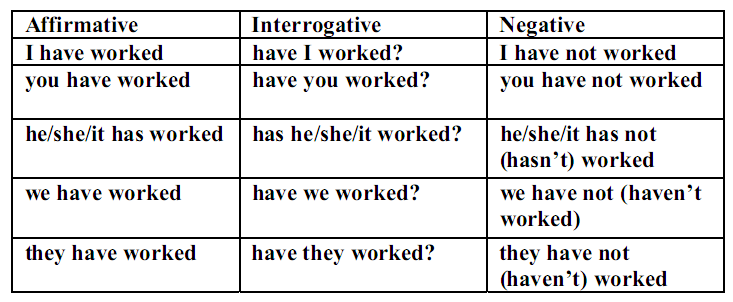
- •Практическая грамматика английского языка
- •Часть 1
- •I семестр
- •In this unit you are to revise the main grammar phenomena Form a
- •In this unit you are:
- •Part a. Theoretical Material
- •Part b. Practical Exercises
- •Part c. Mini-test
- •I. Guess
- •In this unit you are:
- •Part a. Theoretical Material
- •Part b. Practical Exercises
- •Part c. Translation and editing section
- •Part d. Revision exercises
- •Part a. Theoretical Material
- •Part b. Practical Exercises
- •Part c. Translation and editing section
- •Part d. Revision exercises
- •Part a. Theoretical Material
- •But: How long is it since you last saw her?–It is ages since I last saw her.
- •Part b. Practical Exercises
- •Part d. Revision exercises
- •Part a. Theoretical Material
- •I / he / she / it we / you / they had been working
- •Part b. Practical Exercises
- •Part c. Translation section and editing section
- •Part d. Revision exercises
- •Part a. Theoretical Material
- •Other Ways of Referring to the Future
- •Part b. Practical Exercises
- •Part c. Translation section and editing section
- •Part d. Revision exercises
- •Part a. Theoretical Material
- •Part b. Practical exercises
- •Part a. Tenses
- •Part b. General Practice
- •Part c. Translation
Part a. Theoretical Material
The Present Perfect
Meaning. The present perfect form denotes the action preceding the moment of speaking, though it is connected with it either directly or indirectly, that is:
a) it continues up to the moment of speaking
b) takes place within a period of time before and including the moment of speaking, so it is relevant to the moment of speaking through its effect or virtually through its continuation at the moment of speaking.
Formation. The present perfect is formed analytically, by means of the auxiliary to have in the present indefinite and participle II of the notional verb.

Main Uses
The present perfect is used:
1) when the speaker merely states that an action took place in the past without mentioning any definite circumstances under which it occurred. It means that it is the happening itself that matters in the speaker’s opinion, the circumstances of the action are not important at the moment: “I’ve spoiled everything,” she said. He is very sensitive, I have discovered that.
The time of the action is either not indicated at all, or is indicated by means of adverbs of indefinite time and frequency, such as already, always, before, ever, never, of late, lately, just, in the last few days, occasionally, often, seldom, several times, since dinner, so far, recently, up to now, (not) … yet, etc.
e.g. I have met a lot of people in the last few days. I am hungry. I haven’t eaten anything since breakfast.
2) when the speaker means that, though the action is over, the period of time within which it was performed is not yet over at the moment of speaking (an incomplete period). The time is indicated by such words as today, this morning, this week, this winter, all my life, all the time, etc: What Rosanna has done tonight is clear enough. This year we have taken only one assistant.
But if the period is over or reference is made to a particular past point of time within that period, the simple past is used:
(at 11 a.m.) Tom has rung up three times this morning already.
(at 2 p.m.) Tom rang up three times this morning.
3) to denote actions still in progress, which began before the moment speaking and go up to that moment or into it. In this case either the starting point of the action is indicated by means of the adverb ‘since’, a prepositional phrase with since, or an adverbial clause with the conjunction ‘since’, or the period during which it continued by various adverbs and phrases with for and sometimes in: for an hour, for many years, for the last few days, for a long time, for so long, for ages, in years, in a long while, since morning, in the last few days, etc. or without any prepositions: these three years, all this week, all along, so long, all one’s life, etc.: I have known this young lady all my life. I haven’t seen you for ages. She has been here since 8.
4) in subordinate adverbial clauses of time and condition introduced by the conjunctions when, as soon as, after, before, till and until, if and unless, to denote a future action that will be accomplished before a certain moment in the future: As soon as we have had tea, Ann, we shall go to inspect your house. Wait till I have written the notice.
5) to speak about personal experience in the sentences of this type: This is the best wine I have ever drunk. This is the worst book I have ever read. This is the easiest job I have ever had. It/this is the first time I have seen the mounted band. It is only the second time he has played tennis. This is the only book he has written.
6) in the questions beginning with ‘how long’ (with the verbs that are not used in the continuous form): How long have you been here? – I have been here six months. How long have you known Jane?
